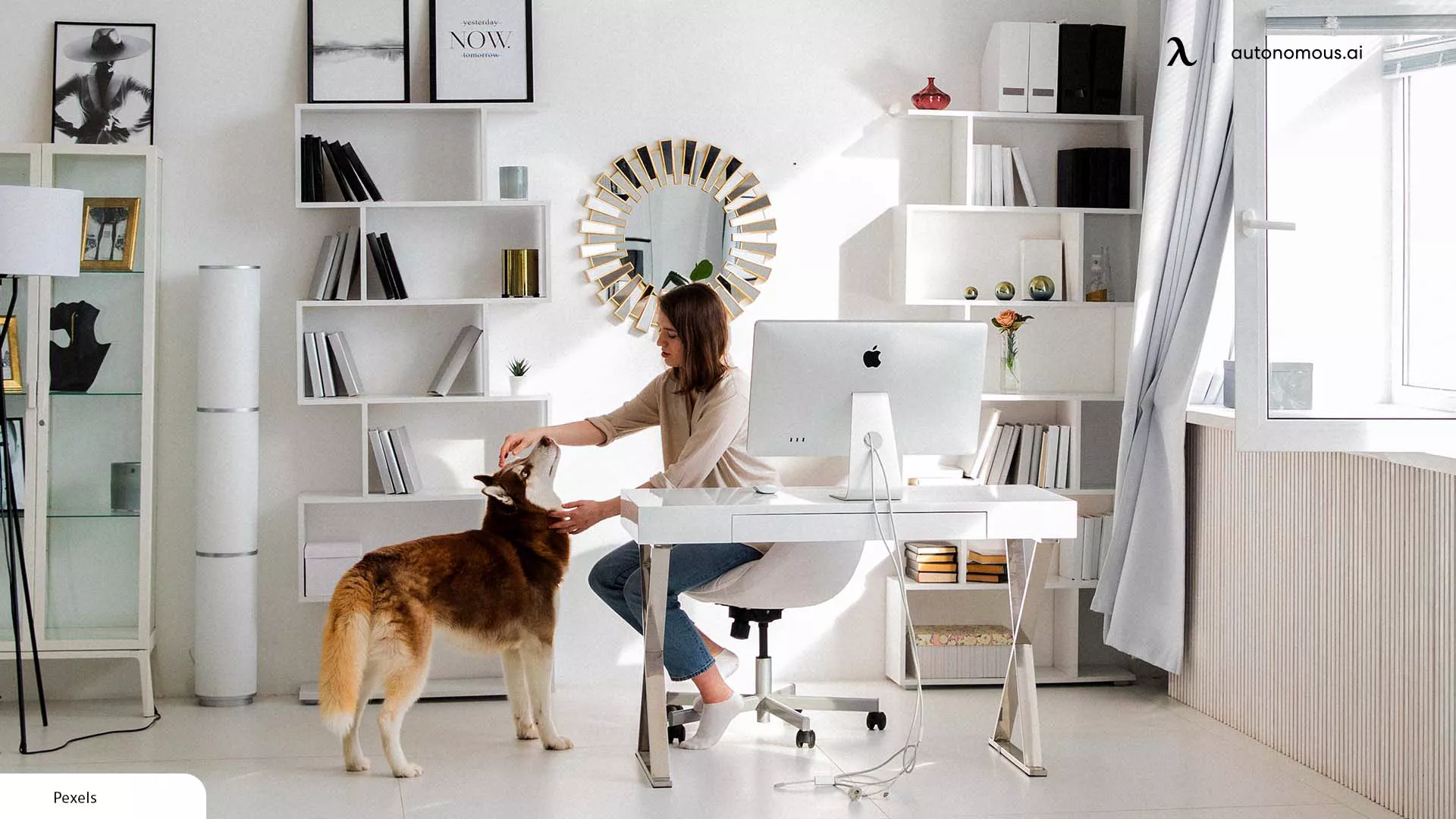
Home Office Desk Against Wall, Window, or Middle of Room?
Table of Contents
Choosing the right placement for your home office desk is crucial for maximizing productivity, comfort, and even the flow of energy according to feng shui principles. Here’s a detailed look at the benefits and considerations for placing your home office desk against wall, window, or in the middle of the room.
Desk Against Wall
Placing your home office desk against a wall is a popular choice for several reasons. It saves space and creates a tidy, efficient work environment. This home office desk against wall setup provides a solid background for video calls and minimizes distractions. Feng shui experts suggest that facing the wall can symbolize a lack of opportunities, so adding artwork or inspiring visuals can help maintain motivation.
Usage Tips:
- Utilize wall-mounted shelves for extra storage.
- Add a corkboard or whiteboard for notes and planning.
Feng Shui Insights:
- Enhance the energy flow by placing inspiring art or a vision board on the wall.
- Ensure the wall is free of clutter to avoid feeling cramped or restricted.
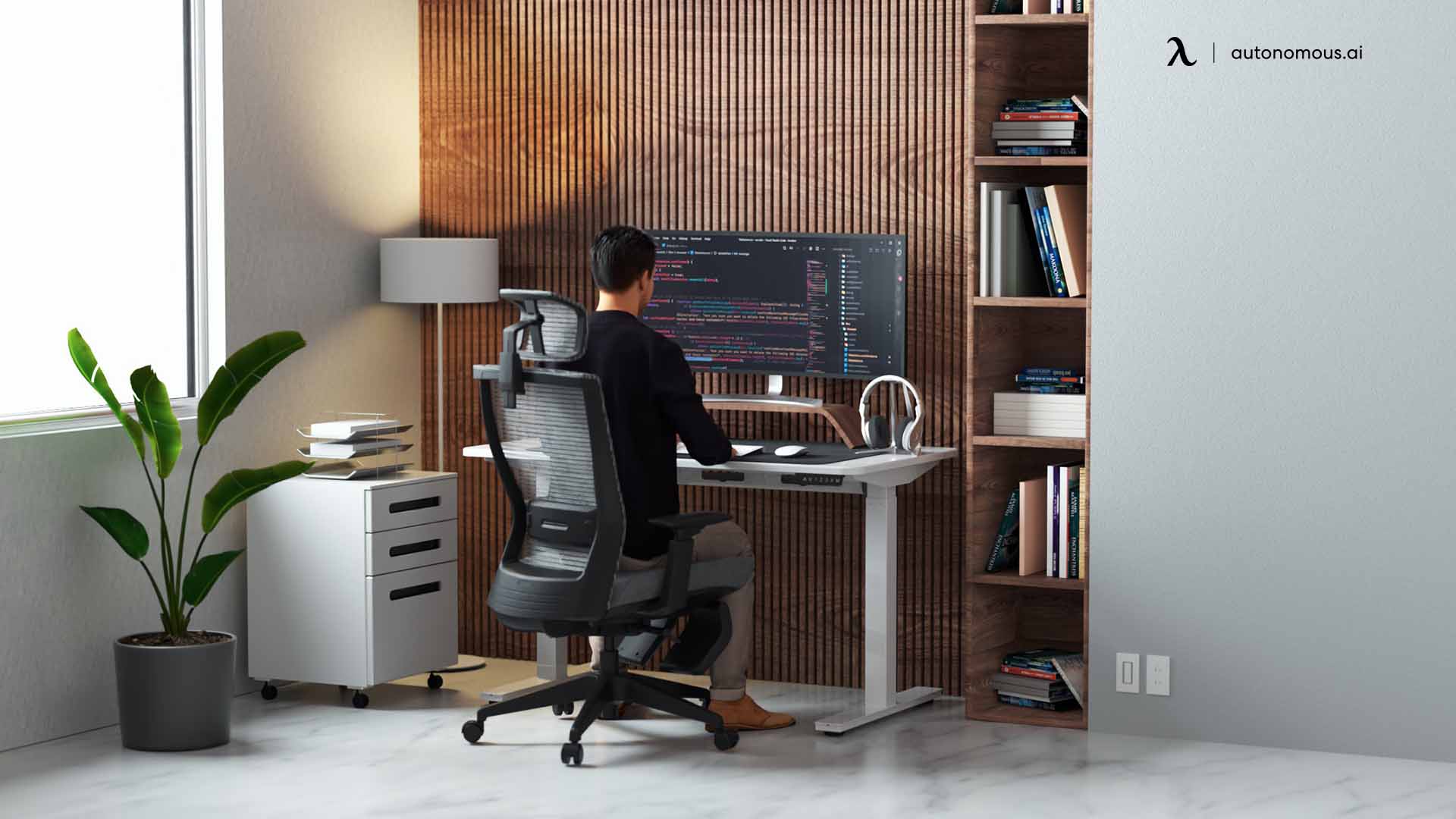
Desk Against Window
A desk against a window allows for plenty of natural light, which can boost mood and productivity. The view can provide a refreshing break, reducing eye strain and improving mental clarity. However, it’s essential to manage potential screen glare and temperature variations due to sunlight.
Usage Tips:
- Use blinds or curtains to control light levels.
- Position your desk to face the window to enjoy the view without glare.
Feng Shui Insights:
- Ensure the window has a pleasant view to attract positive energy.
- Avoid positioning yourself with your back to the window to prevent a sense of instability.
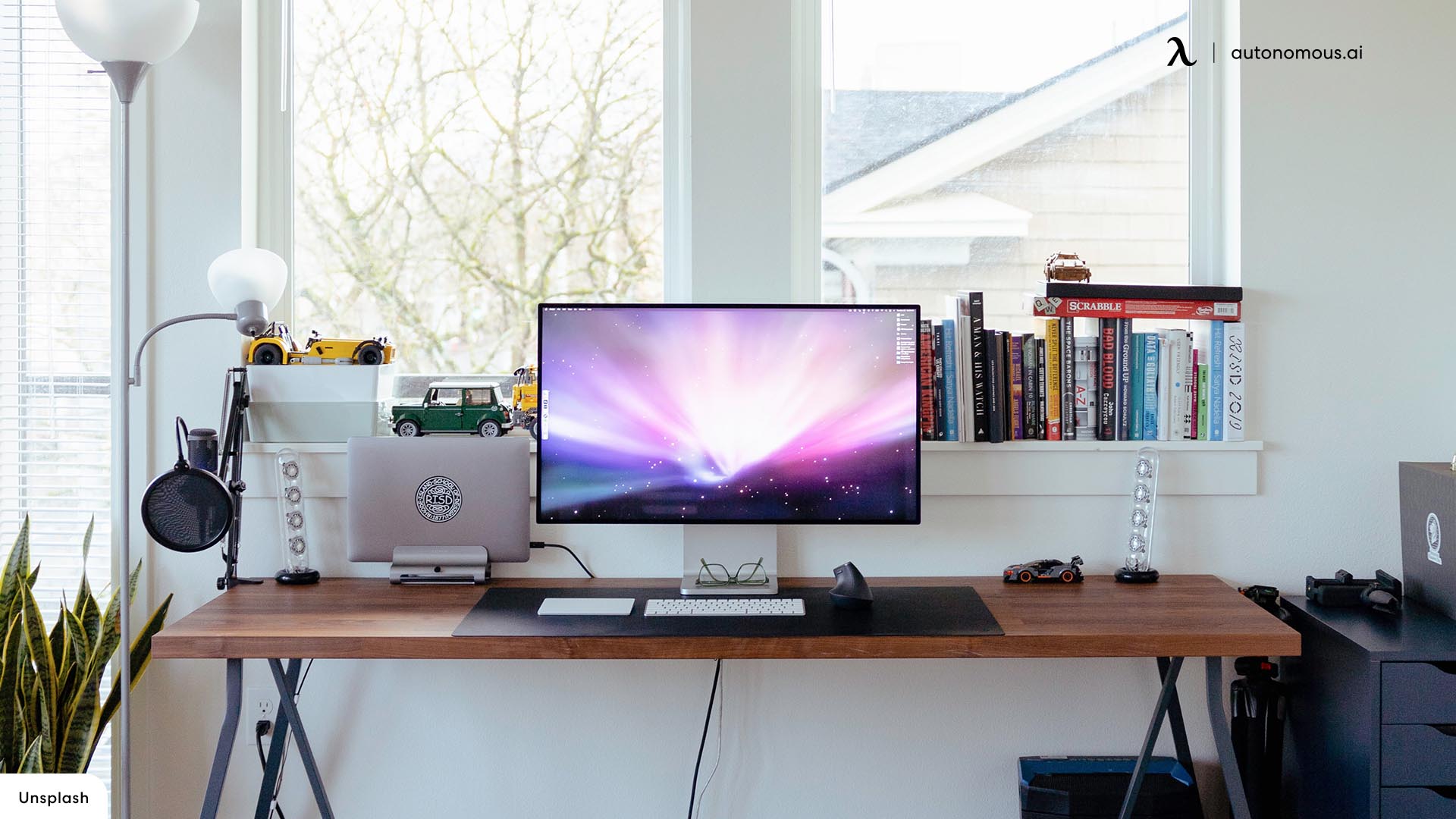
Desk in the Middle of Room
Placing your desk in the middle of the room creates an open and inviting workspace. This setup is ideal for larger rooms and encourages a dynamic workflow. It’s great for collaboration and easy access to all sides of the desk. However, managing cables and maintaining organization can be challenging.
Usage Tips:
A standing desk with cord management can solve this issue by providing built-in solutions like cable trays and grommets to keep wires organized and hidden, ensuring your workspace remains tidy and functional even in a central room setup.
- Use floor cable covers to keep cords tidy.
- Opt for a desk with built-in storage to reduce clutter.
Feng Shui Insights:
- Position your desk so you can see the door, which is said to increase feelings of security and control.
- Ensure there’s enough space around the desk to allow for free movement and energy flow.
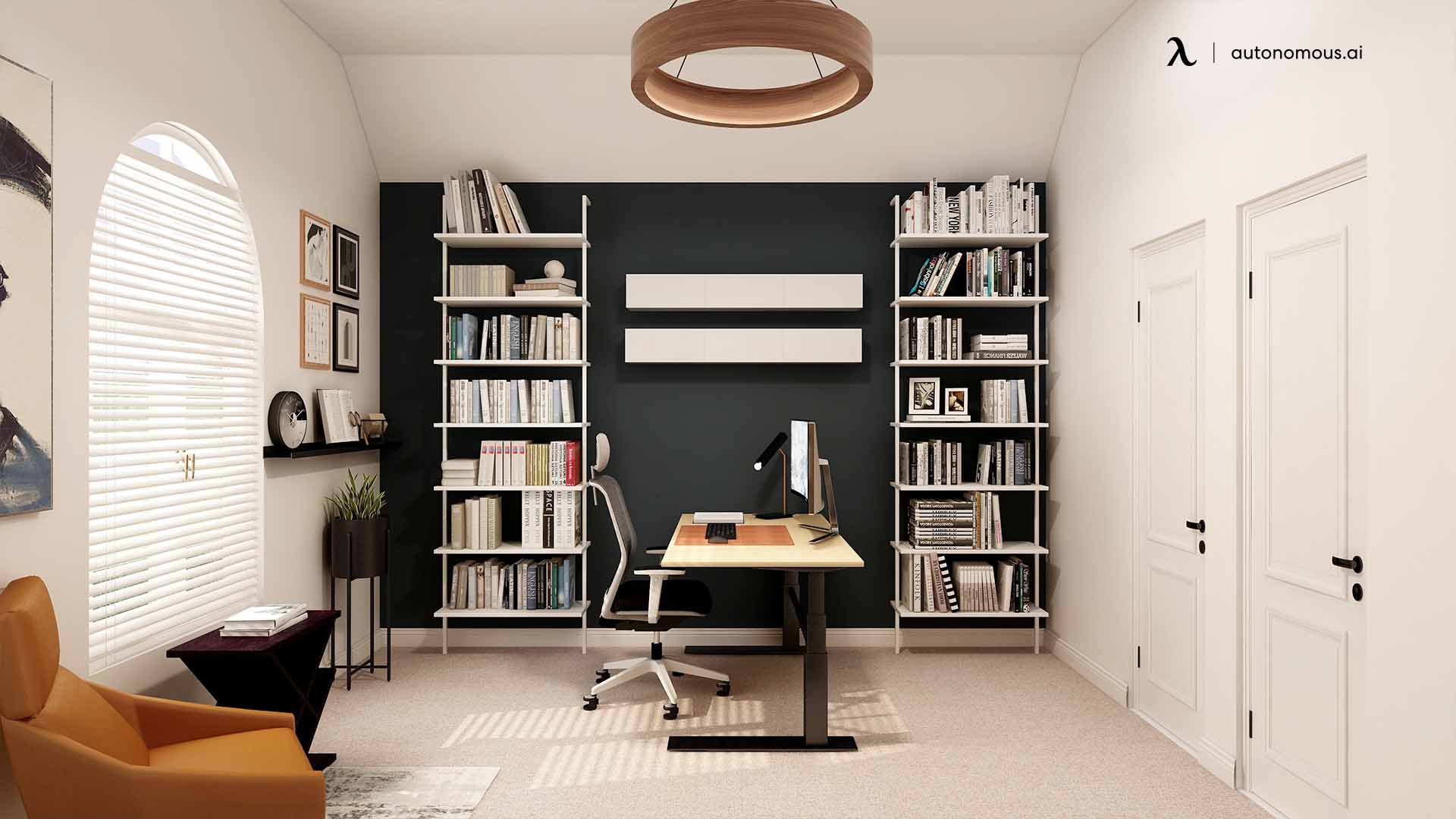
Pros and Cons of a Home Office Desk Against the Wall
When designing your space, home office desk placement is crucial for productivity and comfort. One common choice is placing your desk against a wall. Here, we explore the pros and cons of this home office desk against wall setup to help you make an informed decision.
Pros
1. Space-Saving: Placing your home office desk against wall maximizes available floor space, making it ideal for smaller rooms. This arrangement allows you to utilize the room efficiently, leaving more space for other furniture or movement.
2. Organization: A wall provides easy access to power outlets and cable management solutions, keeping your workspace tidy and free from clutter. This setup can lead to a cleaner and more organized work environment, which can enhance productivity.
3. Reduced Distractions: Facing a wall minimizes visual distractions, helping you focus better on your tasks. This setup is particularly beneficial if you need a distraction-free environment to concentrate on detailed or demanding work.
4. Background for Video Calls: Having your home office desk against wall provides a stable and professional background for virtual meetings. You can customize this background with artwork or shelves to reflect a professional image during video calls.
5. Storage Solutions: Placing your desk against a wall allows for the installation of wall-mounted shelves or cabinets. These storage solutions can help you keep essential items within arm's reach, improving your workflow and organization.
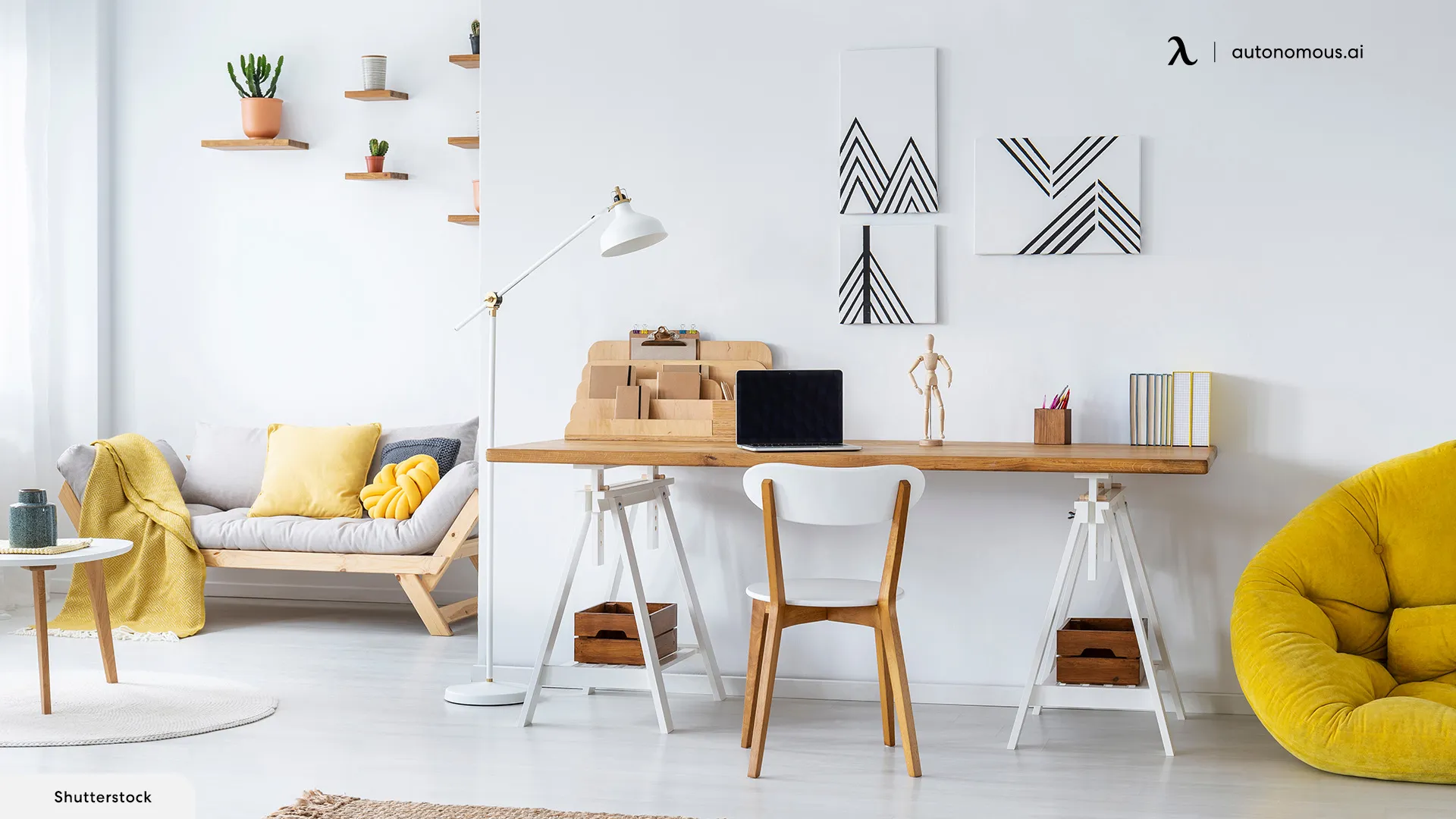
Cons
1. Lack of Natural Light: Placing your desk against a wall might limit your exposure to natural light, especially if the wall is away from windows. Natural light is essential for maintaining good mood and energy levels throughout the day.
2. Limited View: Facing a wall can feel confining and may lack visual stimulation. This setup might become monotonous over time, potentially affecting your creativity and motivation.
3. Feng Shui Considerations: According to feng shui principles, facing a wall can symbolize a lack of opportunities and may block positive energy flow. To mitigate this, you can add inspiring artwork or a vision board to the wall to enhance motivation and energy.
4. Ventilation: A desk placed against a wall might restrict airflow around your workspace. It's important to ensure good ventilation in the room to maintain a comfortable working environment.
5. Potential Clutter: Without proper organization, the wall area can become cluttered with cables, office accessories, and decor items. Effective cable management and regular tidying are essential to maintain a clean workspace.
Choosing to place your home office desk against a wall comes with its own set of advantages and disadvantages. It offers practical benefits like space-saving and organization but may limit natural light and visual stimulation. By considering these pros and cons, you can create a workspace that supports your productivity and well-being.
Ultimately, the best desk placement depends on your specific needs, preferences, and the layout of your home office. Whether you choose to place your desk against a wall, a window, or in the middle of the room, ensure that it enhances your comfort, productivity, and overall work experience.
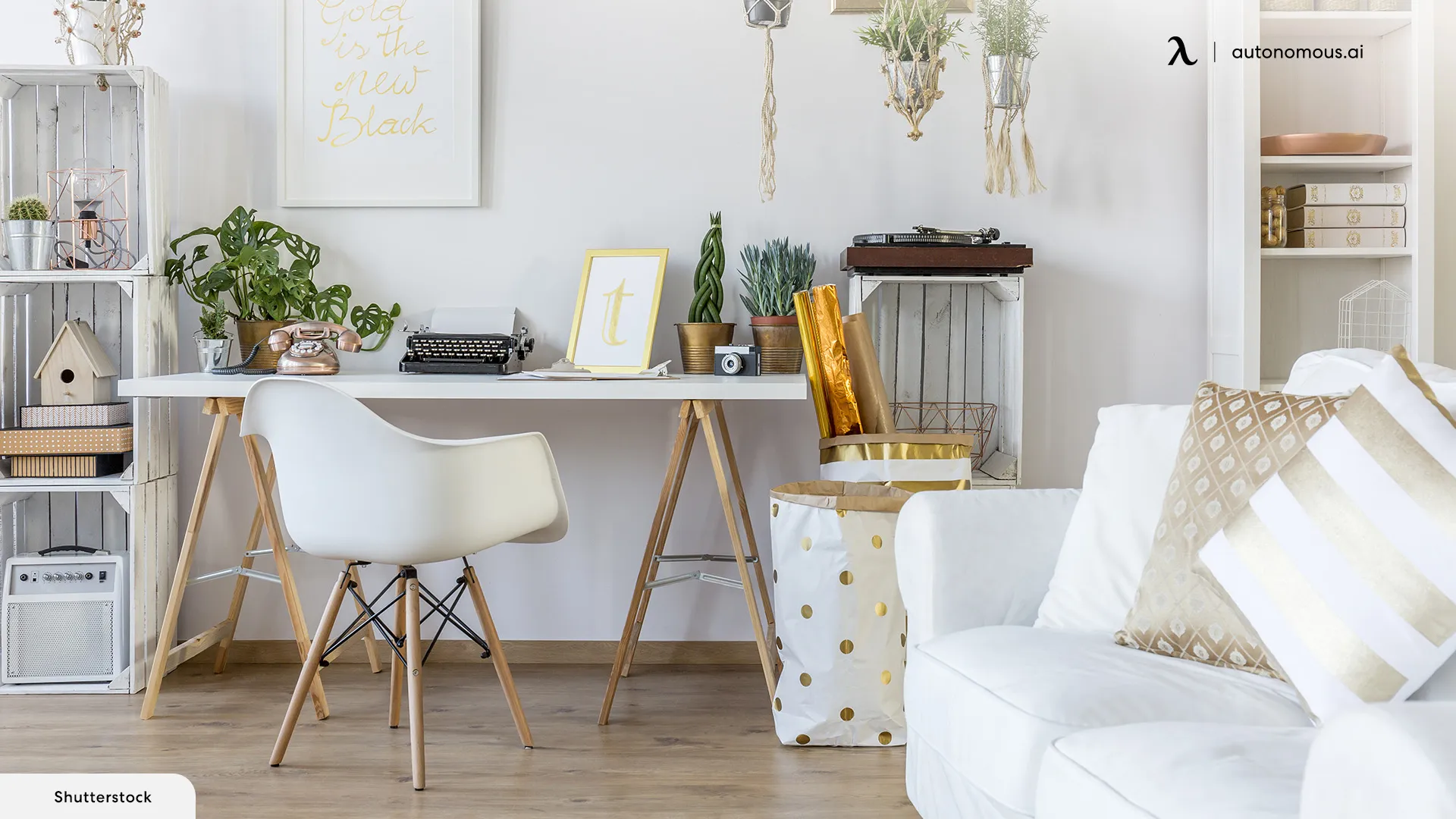
FAQs
What are the benefits of placing a home office desk against a wall?
Placing a desk against a wall saves space, creates a tidy work environment, and provides a solid background for video calls. It also minimizes distractions, which can enhance focus and productivity.
How can I reduce glare if my desk is against a window?
To reduce glare, use blinds or curtains to control light levels. Position your desk to face the window for a pleasant view without direct sunlight on your screen. Consider using an anti-glare screen protector for additional protection.
Is it good feng shui to place a desk in the middle of the room?
Yes, placing a desk in the middle of the room can be good feng shui. Ensure you can see the door from your desk to increase feelings of security and control. Maintain free space around the desk to allow for smooth energy flow.
How can I manage cables if my desk is in the middle of the room?
Use floor cable covers to keep cords tidy and prevent tripping hazards. Opt for a desk with built-in storage or a central power hub to manage electronic devices efficiently.
What should I consider when placing a desk against a window?
Ensure the window provides a pleasant view to boost positive energy. Manage potential glare and temperature variations with blinds or curtains. Incorporate plants on the windowsill to enhance the connection with nature.
How can I personalize my desk against a wall for better feng shui?
Enhance energy flow by placing inspiring art or a vision board on the wall. Keep the wall clutter-free to avoid feeling cramped. Incorporate personal items that motivate and inspire you.
.webp)
Conclusion
Choosing whether to place your home office desk against a wall, window, or in the middle of the room depends on your specific needs, space constraints, and even feng shui office desk principles. Each option offers unique benefits, from enhancing natural light to optimizing space and ensuring a productive, positive work environment. Consider these tips and insights to create a workspace that supports your professional and personal well-being.
Stay connected with us!
Subscribe to our weekly updates to stay in the loop about our latest innovations and community news!
Interested in a Link Placement?
Spread the word
.svg)




/https://storage.googleapis.com/s3-autonomous-upgrade-3/production/ecm/230914/bulk-order-sep-2023-720x1200-CTA-min.jpg)

/https://storage.googleapis.com/s3-autonomous-upgrade-3/production/ecm/230824/image_qIN1zTxi_1692157652807_raw-c3a7f648-6021-42f1-a20f-0874805faad0.jpg)